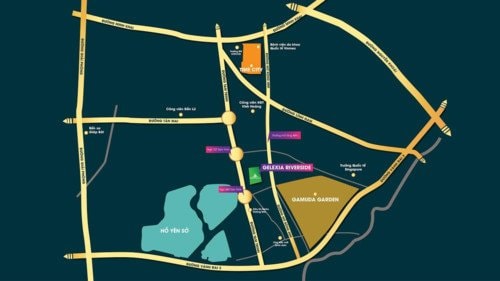Provincial level is not allowed to use clean land to pay for BT projects without the Prime Minister's consent.
Using clean land to pay for BT projects must be approved by the Prime Minister instead of giving the authority to the Provincial People's Committee as before, causing great loss to the budget.
Mr. La Van Thinh, Director of the Department of Public Asset Management, informed this at a press conference on the afternoon of August 16 about Decree 69 (issued on August 15, 2019) regulating the use of public assets to pay investors when implementing investment projects and construction works under the form of build-transfer (BT) contracts.
Mr. Thinh said: According to the Decree, the use of public assets to pay investors when implementing BT projects is carried out according to the principle of parity, the value of the BT project must be equivalent to the value of public assets for payment.
For example, when the locality needs to build a bridge worth 200 billion VND, the land to be exchanged must also have an equivalent value. In case the value of the land is higher than the value of the project, the investor must pay the difference (in cash) to the budget. In case the value of the land is lower than the value of the project, the budget will compensate the investor.
 |
| The Minh Khai - Vinh Tuy - Yen Duyen connecting road is one of five BT projects in Hanoi that was required to stop using public assets to pay investors in March 2018. |
The Decree also stipulates that the value of public assets used to pay investors is determined by market price, while the value of BT projects is determined by the results of open bidding. With this regulation, Mr. Thinh believes that it will completely resolve previous concerns such as designating construction contractors or paying investors for public assets exceeding the value of the project.
Responding to the reporter's question: "What is the market price, who determines the market price?", Mr. Thinh said: There are many ways to establish the market price, auction is just one method. "Currently, the market price of land is determined according to Decree 44 of the Government, which is developed by the Ministry of Natural Resources and Environment using 4 methods. We also have a similar question and will accompany the Ministry of Natural Resources and Environment when the Land Law is amended," Mr. Thinh said.
Regarding the payment time - an issue that has caused a lot of controversy in the past, it is now stipulated that: The payment time for BT projects in the case of payment by land fund or office building (i.e. clean land) is the time when the Provincial People's Committee issues a decision on land allocation or land lease to the investor. The payment time for BT projects in the case of payment by infrastructure assets and other types of public assets is the time when the competent state agency issues a decision on asset allocation to the investor.

A series of BT and BOT projects have reduced their total investment by 20% after review.
The information was given by the Ministry of Transport at a meeting on the afternoon of April 23.
On that basis, the State will hand over public assets to pay investors after the BT project is completed or hand over simultaneously according to the construction progress determined by the competent State agency in accordance with the provisions of law.
For public assets used for payment, there are 4 types including: Land fund; land, houses and other assets attached to land (offices); assets are infrastructure serving the interests of the people and the nation; and finally other assets.
It should be noted here that, for clean land (cleared and compensated) and the office headquarters of the agency, if used to pay BT investors, it must be approved by the Prime Minister. Because according to Mr. Thinh, the headquarters of state agencies are located in large urban areas, so the commercial advantage of land is high.
“The provincial chairman cannot make decisions without the Prime Minister’s approval. This is a matter that needs to be agreed upon in terms of authority because previously this authority was assigned to the provincial People’s Committee,” Mr. Thinh emphasized.
The Decree also stipulates that the loan interest in the financial plan of the BT contract for the value of the BT Project completed according to schedule shall terminate from the time the competent state agency issues a decision to allocate land, lease land, or transfer assets to the investor.
A new point, Mr. Thinh noted, is that the use of public assets to pay investors to implement BT projects must be aggregated and reflected in the state budget. This means that resources to implement BT projects are also considered budget resources, just not in cash but in other assets.
Decree 69 will apply from October 1, 2019 and replace previous regulations on using public assets to pay BT project investors.


